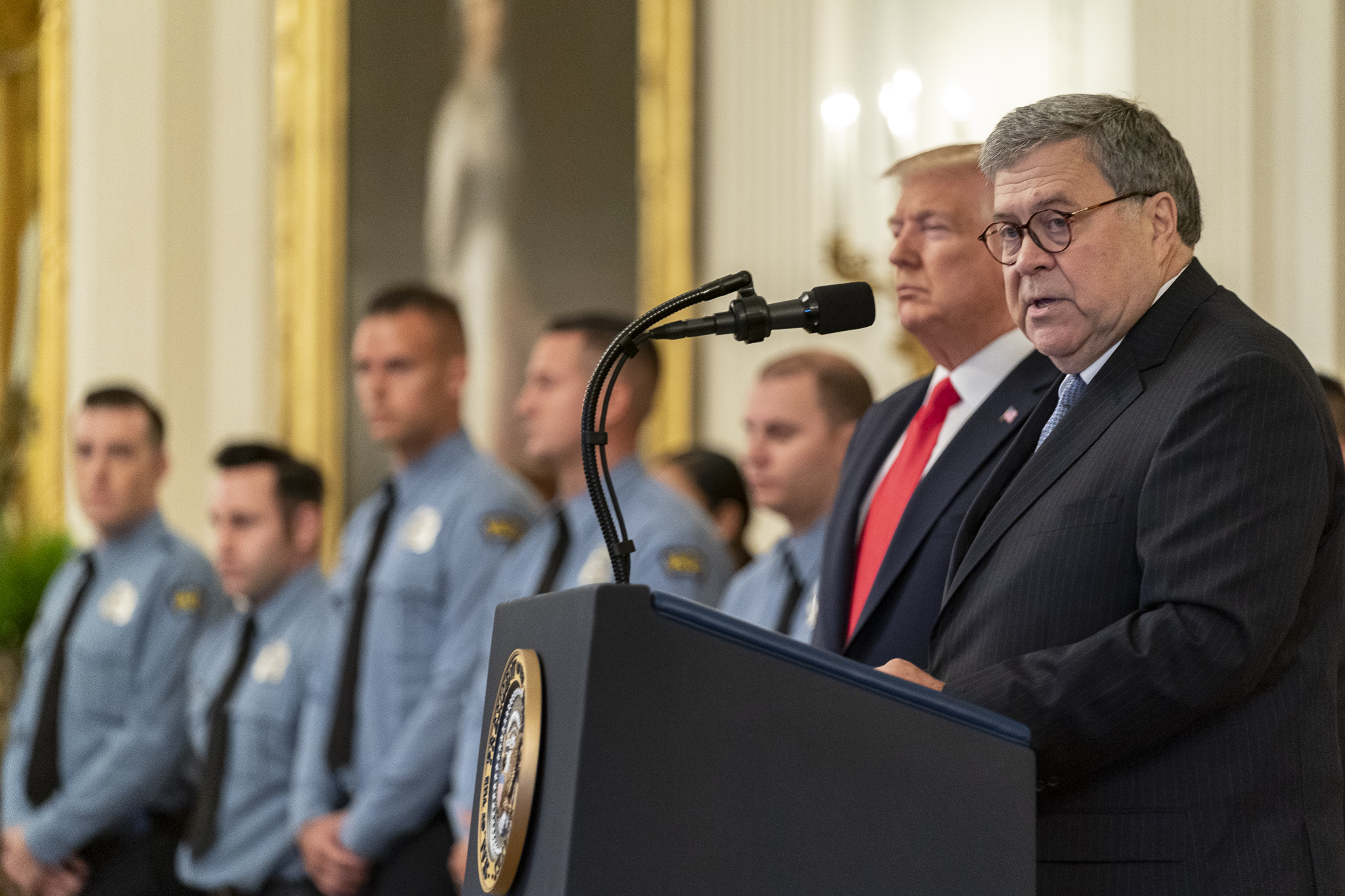Today's Headlines and Commentary
“The peace and security we enjoy in Europe and North America are under threat like never before,” writes Secretary General of NATO Anders Fogh Rasmussen in a rousing op-ed in the Wall Street Journal. Rasmussen calls ISIS and Russia the two greatest threats to Western values, including liberty, democracy, and the rule of law.
His comments come as NATO appears to have suffered the latest attack on its forces in Afghanist
Published by The Lawfare Institute
in Cooperation With

“The peace and security we enjoy in Europe and North America are under threat like never before,” writes Secretary General of NATO Anders Fogh Rasmussen in a rousing op-ed in the Wall Street Journal. Rasmussen calls ISIS and Russia the two greatest threats to Western values, including liberty, democracy, and the rule of law.
His comments come as NATO appears to have suffered the latest attack on its forces in Afghanistan. Yahoo! News reports that a suicide attack targeting a military convoy killed two U.S. troops and a Polish soldier today near the U.S. embassy in Kabul, the capital. The attack, which also left 13 Afghan civilians wounded, is one of the worst on NATO forces in months. According to the Wall Street Journal, the Taliban took responsibility.
Farther west, Israeli newspaper Yediot Achronot tells us that ISIS militants shot down a Syrian military jet using anti-aircraft weaponry outside its stronghold of Raqqa yesterday. The group’s success comes as the first US airstrikes since President Obama’s Wednesday speech began hitting targets in the region. The BBC reports that these initial airstrikes targeted ISIS positions in the key city of Sadr al-Yusufiya, only 15 miles from Baghdad. In the north, US surveillance jets and drones are helping Kurdish “peshmerga” forces advance on the ISIS-occupied city of Mosul, Iraq’s second-largest. Peshmerga forces are reportedly moving into the plains east of the city, as well as towards the town of Zumar. Finally, a third series of US airstrikes struck the town of Sinjar in north-western Iraq, destroying 6 ISIS vehicles. According to Yahoo! News, in response to the increased airstrikes, ISIS militants threatened to attack the U.S. and its allies.
The New York Times reports that US Secretary of State John Kerry is open to talking to Iran about the security situation in Iraq, only days after the Supreme Leader of Iran, Ayatollah Ali Khameini angrily rebuffed collaboration of any kind with the US.
Here’s a germane question: are we at war? So asks Amy Davidson at the New Yorker, who examines the continuing legal questions over the President’s campaign in Iraq and Syria. Over at Defense One, Molly O’Toole charts President Obama’s stunning reversal on Bush’s laws of war.
In Washington, the House of Representatives began debating legislation intended to authorize the arming of Syrian rebel groups. Reuters reports on the rare bipartisan initiative, written by Republican lawmakers with “input from the White House,” which would train rebels who oppose both ISIS and Assad’s regime. In the bill’s current form, this approval would be contingent on prohibiting the deployment of US ground forces as well as regular progress reports from the President on its implementation. The bill can be found here. Also, make sure to read a recent report released by the US Treasury detailing how the US government plans to hit ISIS in its pocketbook. To stay up to date on this evolving campaign, check out a live feed provided by the Guardian of US Secretary of Defense Chuck Hagel’s testimony before the Senate Armed Services Committee.
While many countries condemned the beheading of humanitarian worker David Haines at the hands of ISIS militants on Saturday, his death appears to be shifting popular willingness to engage militarily with the Islamist group in a singular country: his home, the UK. Foreign Policy assesses to what extent public opinion in the UK after his murder might reflect the shift observed in the US, where initial reticence to act against ISIS evaporated after American citizens were decapitated by the militant group.
Speaking of outside players, a new CNA report is out that tracks trends in the Gulf States’ foreign policy objectives, with a specific focus on the upheavals in Egypt and Syria. The report, entitled, “Reaping the Whirlwind,” can be found here.
The New York Times released a story today claiming that ISIS is drawing large numbers of recruits from none other than NATO member Turkey. According to the article, as many as 1,000 current ISIS operatives hail from Turkey. This allegation comes as the Turkish government plays defensive in the face of another New York Times report that claimed the Turks may be increasing ISIS’s coffers by buying oil from areas occupied by the militant group. Ankara slammed the reports, with Turkish energy minister Taner Yildiz claiming that they were attempting to construct an “image of Turkey cooperating with ISIL.”
This news comes as the new Turkish Prime Minister, Ahmet Davutoglu, is still transitioning into the office. War on the Rocks has a piece on the new leader and what his rise portends for Turkey’s role in the region.
Foreign Policy writes that Israel is looking to get in on the anti-ISIS action. This, after earlier reports already claimed that the Jewish state has been providing intelligence to other countries in the region via the US in an effort to stem the group’s rise. Additionally, the Jerusalem Post quotes one high-ranking Israeli official as saying that Israel would intervene if ISIS mounted a significant threat to its eastern neighbor, Jordan.
Israel’s possible inclusion in this grand coalition would only exacerbate already-existing tensions in the alliance’s current configuration. At Foreign Policy, James Stavridis, the former supreme allied commander of NATO, has 7 pieces of advice for creating a durable confederation of states.
How can the US and other allies attack ISIS without empowering the brutal Assad regime? In an effort to allay the concern, senior administration officials vowed yesterday that the US would retaliate against any attack by Assad on their forces. The Military Times has more details. Relatedly, the Times of Israel carries statements made recently by a UN panel devoted to the Syrian crisis, which decried Western inaction in the face of the pro-Assad forces' continuing abuses and asserted that the regime's crimes are worse than ISIS’s.
According to Josh Rogin at the Daily Beast, while the Obama administration may think it has legitimized its domestic legal authority to attack ISIS in Syria, it still has no international legal theory in place to explain its airstrikes.
As to domestic law, Senator Tim Kaine of Virginia wrote in a New York Times op-ed that President Obama must gain Congress’ approval for the fight against ISIS. He also cautioned that the “open-ended 9/11 authorization needs to be limited to a more specific framework.”
In another op-ed in the New York Times, the editorial board yesterday urged Congress not to hide the Syrian aid vote in a stopgap spending bill that will keep Congress running only through December.
Finally, Afzal Ashraf of the BBC implores the West to remain vigilant and optimistic, because “ISIS will not endure” in the face of a growing international response.
In Africa, the Ebola epidemic is growing exponentially in the nation of Liberia, a worsening situation that, according to the country’s defense minister, may threaten the country’s “national existence.” In response to the dire reports, President Obama today announced a major expansion of its containment efforts in the region. The New York Times reports that Washington expects to send as many as 3,000 US military officials to Liberia, in addition to constructing 17 Ebola treatment centers in affected countries, totaling around 1,700 beds. It also hopes to train 500 health care workers per week to restrict the outbreak, which has already killed over 2,000 people. Additionally, Foreign Policy divulges that the Pentagon has requested about $500 million in emergency funds to deal with Ebola as well as the refugee crisis in Iraq, but its lack of transparency in outlining its reprogramming request has irked some in Washington. The Huffington Post has a map of the regions worst affected by the outbreak.
Elsewhere, the Washington Post writes that the UN is taking over a peacekeeping mission in the volatile Central African Republic, promising to add 1,500 more troops to an existing force of 4,800.
The BBC has the latest developments in the instability in Eastern Europe, reporting that the Ukrainian government has promised rebels “self-rule” and amnesty. This comes amid reports that Russia intends to up its troop count in the disputed territory of Crimea, as well as news from Deutsche Welle that Ukraine successfully ratified an association agreement with the EU. Despite this news, Simon Shuster of Time magazine asserts that Russian President Vladimir Putin successfully forced the EU to accept his dominance in Eastern Europe.
Still, Russia has not emerged from the conflagration unscathed. According to Yahoo! News, former Russian finance minister Alexei Kudrin warned on Tuesday that in the face of increasingly-strict Western sanctions, the Kremlin must intervene in order to stave off a recession in the country. As Russian newspaper Gazeta reports, his pronouncement comes as the ruble continues to fall in value, reaching 50 to the euro on Tuesday and 39 versus the greenback.
In a mock Chinese memo entitled, “All Your Pivots Are Belong to Us,” Kore Schake of Foreign Policy analyzes the Chinese perspective on President Obama’s “pivot” to Asia in light of the US’s decision to engage militarily with ISIS in Syria and Iraq.
At the Huffington Post, Shashi Tharoor, former Indian Minister of State for External Affairs and Chariman of the Parliamentary Standing Committee on External Affairs, argues that India and China have outgrown the Western order, and feel more confident challenging it. However, despite warming political ties and India’s forthcoming entry into the China-dominated Shanghai Co-operation Organization, Brahma Chellaney, Professor of Strategic Studies at the Center for Policy Research, asserts that India ultimately seeks to counterbalance China’s influence on the continent.
Tragic news from the Mediterranean: the Guardian reports that a migrant boat headed towards Europe appears to have been deliberately sunk by smugglers, killing approximately 500 people.
In Egypt, a bombing on an armored convoy in northern Sinai killed 6 Egyptian policemen, including two officers. The BBC has details.
The L.A. Times reports that the Justice Department will launch a new program designed to identify potential American Islamic extremists and stop them before they are able to link up with a terrorist organization.
According to Politico, the D.C. Circuit has ruled that it will not televise arguments in Klayman v. Obama, a case set to review the constitutionality of the NSA metadata collection program. However, earlier today, Jane brought us news that the appellees have already filed a similar motion for rehearing en banc.
A nurse who refused to conduct force-feedings of Guantanamo detainees on hunger strike will not be court-martialed; however, a Navy commander has asked a board to determine whether the nurse should be allowed to remain in the U.S. Navy. Carol Rosenberg of the Miami Herald reports.
Finally, while both sides on the Scottish independence referendum have boasted celebrity support in recent days, the pro-independence “Yes” faction may have bagged a clincher: the endorsement of Comedy Central comedian Stephen Colbert. The Guardian has the video.
Email the Roundup Team noteworthy law and security-related articles to include, and follow us on Twitter and Facebook for additional commentary on these issues. Sign up to receive Lawfare in your inbox. Visit our Events Calendar to learn about upcoming national security events, and check out relevant job openings on our Job Board.
Ben Bissell is an analyst at a geopolitical risk consultancy and a Masters student at the London School of Economics. He graduated Phi Beta Kappa from the University of Virginia with majors in political science and Russian in 2013. He is a former National Security Intern at the Brookings Institution as well as a Henry Luce Scholar, where he was placed at the Population Research Institute in Shanghai, China.




